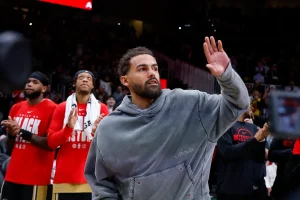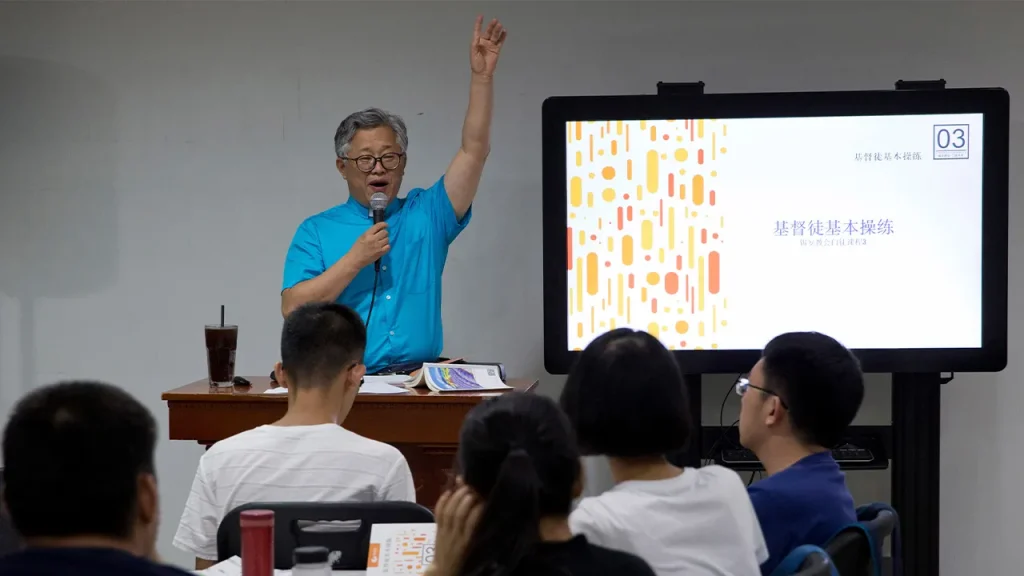Chinese Underground Church Pastor Arrested in Widespread Religious Crackdown
In a sweeping action against underground Christian leaders in China, Pastor Ezra Jin of Zion Church was arrested on Friday, sparking fears for his safety among family members and followers. This arrest appears to be part of a larger coordinated effort targeting evangelical leaders across the country. According to documentation provided by Jin’s daughter, Grace, nearly 30 pastors and church workers from Zion Church alone were detained or went missing across multiple Chinese cities, including Beijing, Shenzhen, Shanghai, Chengdu, Beihai, Jiaxing, and Huangdao. The Associated Press confirmed dozens of other church leaders were similarly arrested in at least six provinces. “One after another, they were taken into custody,” Grace Jin told Fox News Digital, describing how authorities appeared outside church members’ homes before detaining them. While specific charges remain unclear, most detention slips reportedly cite “online dissemination of religious materials” as the reason for arrest.
Zion Church, once Beijing’s largest church, operates as an “underground” congregation because it isn’t officially registered with Chinese authorities, making its activities technically unlawful. This latest crackdown fits into a pattern of increasing religious persecution in China over recent months. In May, Light of Zion Church Pastor Gao Quanfu was detained on charges of “using superstitious activities to undermine the implementation of justice.” The following month, multiple workers from the Golden Lampstand Church received prison sentences on “fraud” charges. Grace Jin expressed particular concern that her father might face similar fraud charges, noting that financial documents were seized from Zion Church during the operation. Pastor Jin has already been under surveillance and subject to an exit ban since 2018, preventing him from reuniting with his U.S. citizen children for over six years.
The government’s hostility toward Zion Church intensified in 2018 when authorities shut down its physical location, which regularly hosted up to 1,500 weekly attendees. “When it shut down in 2018, there was no longer anywhere that would rent out such a big space for Zion,” Grace explained. “If you were to rent out even a small space, they would immediately find out, and they would come and take down Zion.” Facing these restrictions, the church adapted by developing an innovative hybrid worship model—conducting live praise and worship sessions online while distributing materials for smaller prayer groups to gather independently. This creative approach allowed the congregation to continue functioning despite intensifying government pressure.
When the COVID-19 pandemic hit in 2020, Zion Church’s already-established virtual model positioned it uniquely among Chinese churches struggling to adapt to lockdown conditions. “Zion kind of blew up at this point,” Grace recalled. “Christians all across China were attending Zion’s services because it was the only church service for a while that was hosting things every Sunday online with music and sermons.” Pastor Jin generously shared his resources and methods with other churches attempting to navigate the virtual landscape, strengthening connections not only with other congregations but also with individual believers throughout the country. This expanded influence and network likely contributed to making Zion Church a prime target in the current crackdown.
Pastor Jin’s family is now calling on the U.S. State Department to demand his immediate and unconditional release, allowing him to reunite with his family in the United States before facing further persecution by the Chinese government. China Aid, a U.S.-based religious advocacy group, warned that so-called “house churches” like Zion are “facing unprecedented pressure” under the current political climate. “Xi Jinping has waged a war against God’s Church, such as the Zion Church, that he will never win,” stated China Aid founder and President Bob Fu. “The level of persecution against religious freedom has reached the worst [level] in 40 years. Faith is not a crime. Worship is not a crime. Prayer is not a crime.”
The fate of Pastor Jin and the dozens of other detained church leaders remains uncertain as international attention turns to these arrests. Bob Fu has called on potential incoming U.S. administration figures, including President Donald Trump, Vice President JD Vance, and Secretary of State Marco Rubio, to speak out against the Chinese Communist Party’s religious crackdown. Despite the intensifying persecution, Fu expressed confidence in the resilience of China’s Christian community: “The courage of China’s urban pastors and believers will be remembered in history as a living testimony that the light of Christ cannot be extinguished by tyranny.” This latest wave of arrests highlights the continuing tension between China’s authoritarian government and religious groups seeking to practice their faith outside state-controlled frameworks, a struggle that has intensified in recent years as President Xi Jinping has consolidated power and tightened ideological controls across Chinese society.














